Michigan’s medical marijuana law is a mess and dispensaries are popping up like, well, weeds and patients, police and politicians say something needs to change.
For the second year in a row, lawmakers are promising action in the meantime, FOX 2 found that their campaign accounts have reached new highs.
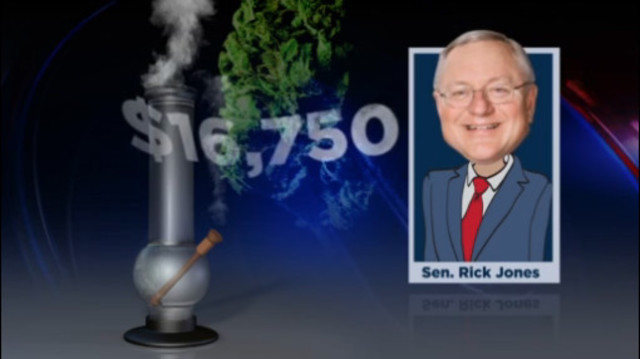
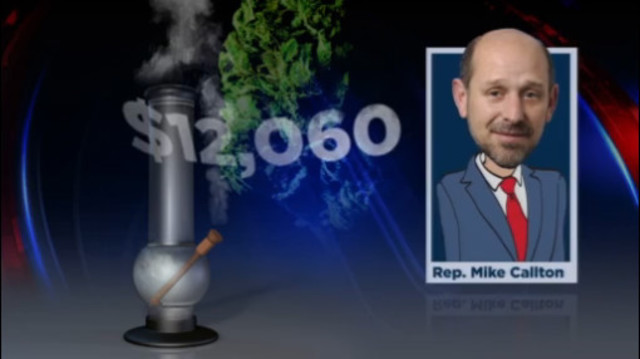
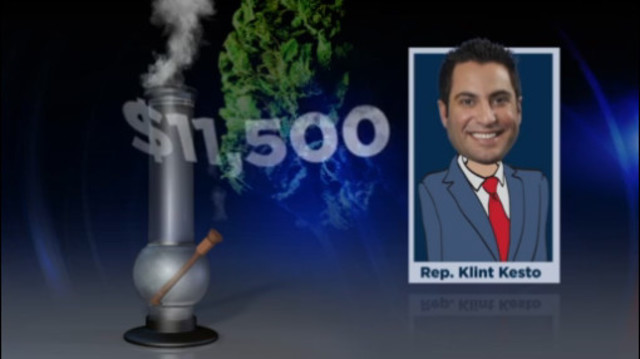
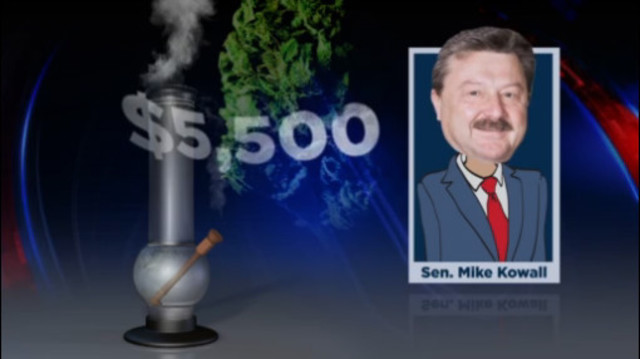
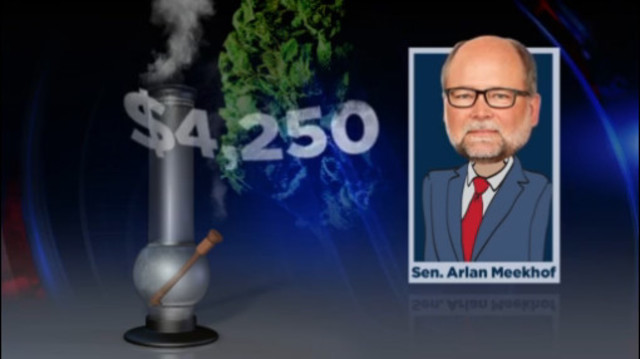
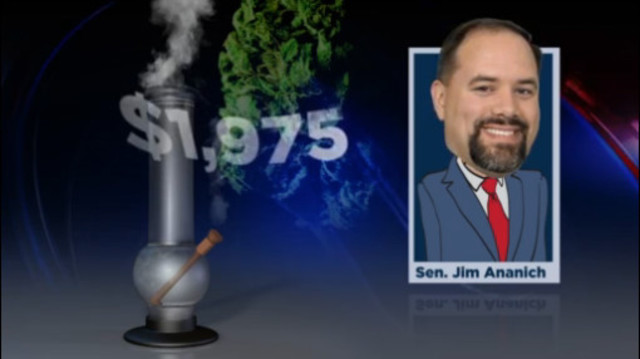
Local News
State lawmakers are finally poised to fix problems with Michigan’s medical marijuana law. It’s a worthy goal, one that that has proven very lucrative.
In fact, their efforts to help patients get better pot, has helped the politicians raise quite a lot.
M.L. Elrick: “How nice do you think it would be for the people of Michigan to say, ‘Here’s a guy who’s not going to take money because he thinks it’s might create at least the appearance of a conflict of interest?'”
Sen. Rick Jones (R-Grand Ledge): “Well … ”
That’s Rick Jones, chairman of Senate Judiciary Committee. Any effort to reform Michigan’s medical marijuana law will need Jones’ blessing.
Jones: “There’s probably a thousand factions out there.”
And many of them have given Jones’ campaign fund or his political action committee a big, fat check.
Jones: “I don’t choose who they donate to.”
That’s because lawmakers are trying to fix problems caused by the 2008 state referendum that made marijuana legal for medicinal purposes only, of course.
Voters approved using cannabis to treat the ill or aching, but questions have cropped up about the legality of matters like dispensaries and marijuana edibles and oils.
The state supreme court has weighed in on some matters, but law enforcement, law makers – and even law breakers – still have plenty of questions.
Key players in the reform efforts are the chairmen of the house and senate judiciary committees.
“What we have right now in Michigan is basically the wild, wild, west,” Jones said.
“We need to have some sort of structure for patient safety,” said Rep. Klint Kesto (R-Commerce) “For consumer safety, if it becomes legal, for a structure so that cities, townships, villages, counties are able to understand where the product is, where it’s going for taxation purposes, in order to provide the services that come after.”
“What this will do is license growers, it’ll license people who transport the product and it will license dispensaries,” Jones said. “People will know what they’re getting. It will be tested for all the bad things like the mold and the bug spray and all that to make sure that people aren’t getting that.
“Treating it more like a medicine I think is important.”
So in one of the ironies that is commonplace in the Capitol, Kesto, who is a former prosecutor, and Jones, a former sheriff, are spending a lot of time hanging out with people who make a living selling weed.
“It’s the American way of politics,” said Rich Robinson.
Still, even the cops say something must be done. Of course, no good deed goes unrewarded in Lansing.
And Kesto and Jones have collected plenty of campaign cash from folks who want to grow grass.
“It’s not surprising at all that the money’s coming out now,” said Robinson: “It’s directed with a purpose. It sure isn’t random.”
Robinson, of the Michigan Campaign Finance Network, has tracked the flow of dough in Lansing for years. He says lawmakers are experts at turning controversy into campaign checks.
“In the way this plays out, Sen. Jones will certainly consider the point of view of the interest group,” Robinson said. “But it’s ‘Step into the milking barn first before we have this conversation.'”
Campaign accounts for key Republican lawmakers have been getting fat with checks from all the folks with a stake in medical marijuana reform.
Jones leads the judiciary committee that is weighing potential changes to the rules. He recently raked in more than $16,000.
Rep. Mike Callton (R-Nashville) led an early house effort to change the law. Since then, he’s collected more than $12,000.
Rep. Kesto has also been a leader on the issue. he’s snagged more than $11,000.
As Senate Majority Floor Leader, Mike Kowall draws a lot of water. And he’s cashed checks worth more than $5,000.
Senate Majority Leader Arlan Meekhof knows how to count votes, too. And the amount sent to his political fund is at more than $4,000.
Democrats have received a little dough, too. Senate Democratic Floor Leader Jim Ananich has collected nearly $2,000.
Overall, Republicans have raised more than $55,000.
Robinson: “That’s real money, that’s real money.”
Kesto has also collected some criticism. George Brikho owns a hydroponics store and claims Kesto’s real goal is to create a lucrative carve out within the marijuana industry that will benefit the Boji family. Kesto disagrees.
“As we set up a framework, people get a little jittery,” Kesto said. “They get scared about the future, and the model changing. And I don’t know what his issue is. But it sounds like it’s more than just the business. He may need some medicine.”
The Bojis cast a shadow over Lansing, and not just from the landmark tower they own across from the Capitol.
Ron Boji recently held a high-end fundraiser for Senate Majority Leader Mike Kowal at his palatial home. Even Gov. Rick Snyder passed through.
Kesto’s political accounts don’t show any recent contributions from Boji. but FOX 2 spied him huddling with Terrance Mansour of the Michigan Cannabis Development Association and a couple other fellows with strong opinions about medical marijuana reform.
Elrick: “Nobody has a leg up with you?” Kesto: “With me? No. I look out for the people of the state of Michigan.”
Sen. Jones also says the only influence he will come under, is what’s best for the good people of the great state of Michigan.
“You will never find, not once, somebody who bought me or bought a vote,” Jones said. “I’m the only guy in town that said ‘no’ to Matty Moroun.”
But there’s no denying that medical marijuana reform has been very good for Jones’ political action committee.
“Jones’ leadership PAC has really been moribund for years,” Robinson said. “And it certainly came to life in the last few months.”
The $14,000 that Jones’ PAC raised in the most recent filing period, is by far the most it has collected in a single reporting period since Jones founded it more than nine years ago.
Much, if not all, of that money came from folks with an interest in the medical marijuana reform legislation that just happens to be resting in the hands of Jones’ Senate Judiciary Committee.
Elrick: “How nice do you think it would be for the people of Michigan to say, ‘Here’s a guy who’s not going to take money because he thinks it’s might create at least the appearance of a conflict of interest?'”
“Well, I would have them look at any other legislator in town and they raise a lot more money than I do,” Jones said. “Some of them a great deal of money. And I don’t.”
Jones’ new-found fundraising prowess comes at a curious time. He is serving his last term in the Senate. Term limits mean his State House career ends in 2018.
Elrick: “Why continue to raise money? If there’s one guy in Michigan who could say: ‘I’m not even going to let people think I’m being influenced by you, it’s me, because I’m done.'”
“Every senator, every representative raises for their caucus,” Jones said. “Typically we’re asked to contribute $7,000 a year to the caucus, Republican or Democrat, either one, to assist with the re-election of other people. so that’s one reason to raise.
“The other reason to raise is that I can take care of the charities, whether it be veterans or children’s groups or hospice or Special Olympics. I can take care of those groups in my community.”
While it took in $14,000 this fall, Jones’ political action committee only cut two checks – one for $200 to the Michigan State University College Republicans and one for $100 to the friends of Sean Bertolino.
Elrick: “So the money that you’re raising now isn’t for your next campaign?”
“Never say never, I haven’t decided,” Jones said. “And I could transfer that. Say I were to run for governor, could I transfer that for a governor’s campaign? Yes, I could.”
Elrick: “And some of the money that you might use for higher office you’re getting it from people who might be spending it, so they can get higher themselves.”
“No,” Jones said. “No.”
Campaign accounts open to public inspection are not the only places lawmakers are loading up on loot. Jones and Kesto are like many politicians in Lansing and have non-profit accounts that don’t have to report where they get their money – or how they spend it.
Jones said that his non-profit has collected $5,000 from marijuana reformers and Kesto says he has only collected a couple thousand.
When it comes to contributors, Jones says nobody has influenced his vote. He says he has invited these people to fundraisers and if they chose to come and make a contribution that was their decision.
If marijuana gets legalized by voters, the reform efforts: Two separate movements: The Michigan Cannabis Coalition and MI Legalize who want to legalize recreational use of marijuana. They are now collecting signatures and they have to collect hundreds of thousands of signatures. That would go on the ballot in November, 2016 .











